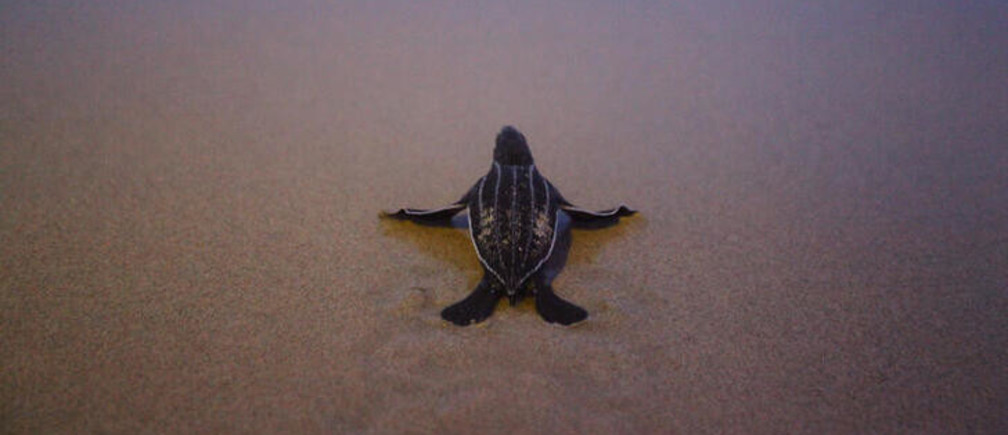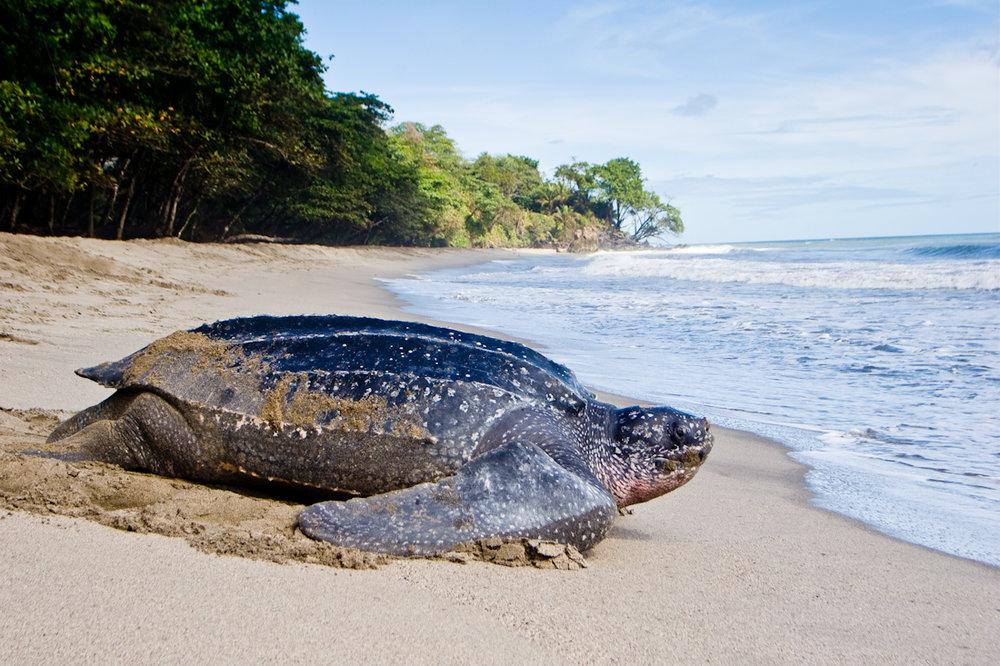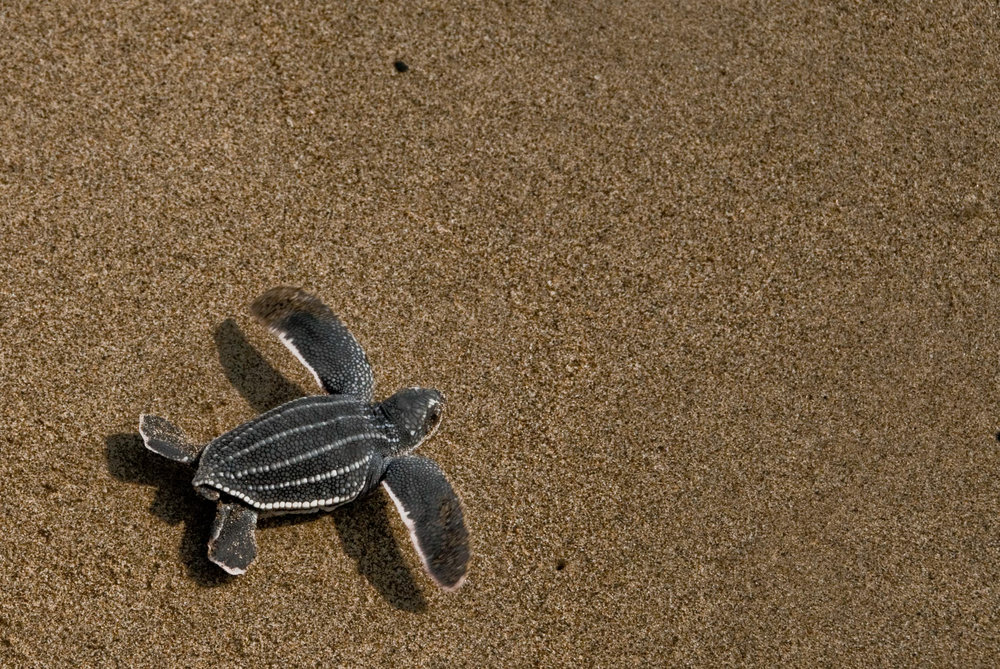
- Inspiring People -
- 4mins -
- 1,183 views
Thailand sees record of rare sea turtle hatchlings as coronavirus pandemic clears beaches
The lack of tourists on Thailand’s beaches has allowed the number of leatherback sea turtles eggs laid to reach a record 20-year high.
Deserted Thai beaches lure more rare turtles than seen in 20 years
Thai beaches are seeing more newborn leatherback sea turtles hatching than they have in 20 years as the coronavirus pandemic keeps tourists away. Tourism has dramatically fallen in the country amid travel restrictions, leaving beaches undisturbed and safer for sea turtles to lay their eggs and hatchlings to make their way back to the sea.

The 11 turtle nests authorities have found since last November were the highest number in 20 years
Reuters in Bangkok have reported that Thailand has found the largest number of nests of rare leatherback sea turtles in two decades on beaches bereft of tourists because of the coronavirus pandemic, environmentalists say.
From wild boars patrolling the Israeli city of Haifa to deer venturing into London suburbs, virus closures are drawing wildlife into the abandoned streets of many cities.
In Thailand, with 2,765 infections and 47 deaths, travel curbs ranging from a ban on international flights to an appeal to citizens to stay home have brought a collapse in tourist numbers, but freed up the beaches for wildlife.
The 11 turtle nests authorities have found since last November were the highest number in 20 years, said Kongkiat Kittiwatanawong, the director of the Phuket Marine Biological Center.
“This is a very good sign for us because many areas for spawning have been destroyed by humans,” he told Reuters. No such nests had been found for the previous five years.
“If we compare to the year before, we didn’t have this many spawn, because turtles have a high risk of getting killed by fishing gear and humans disturbing the beach.”
They are considered endangered in Thailand, and listed as a vulnerable species globally by the International Union for Conservation of Nature.
They lay their eggs in dark and quiet areas, scarce when tourists thronged the beaches. People have also been known to dig into their nests and steal eggs.
Late in March, staff at a national park in the southern province of Phanga Nga bordering the Andaman Sea found 84 hatchlings after monitoring eggs for two months.
Source: Reuters

National park staff found 84 hatchlings in late March
The largest of the sea turtles, leatherbacks (Dermochelys coriacea) reach more than 1.8 m (6 ft) in length and more than 640 kg (1,410 lbs) in weight.
During their long migrations, leatherbacks regularly dive to depths greater than 1,000 m (3,281 ft) in search of gelatinous zooplankton to eat. Leatherbacks are rapidly declining in many areas of the world.
They are considered endangered in Thailand, and listed as a vulnerable species globally by the International Union for Conservation of Nature.
They lay their eggs in dark and quiet areas, scarce when tourists thronged the beaches. People have also been known to dig into their nests and steal eggs.
Late in March, staff at a national park in the southern province of Phanga Nga bordering the Andaman Sea found 84 hatchlings after monitoring eggs for two months.
Source: Reuters

Fun Facts About Leatherback Turtles
1. The leatherback turtle is the largest turtle species in the world.
2. Leatherback turtles are 4.5 to 5.5 feet (1.4 to 1.7 m) long and weigh up to 2,200 pounds (998 kg).
3. Leatherback turtles are the only turtle species in the world that does not have a hard shell and scales.
4. Leatherback turtles are named for their tough skin that resembles rubbery leather.
5. Leatherback turtles have not changed in millions of years and have existed in their current form since the time of the dinosaurs.
6. Leatherback turtles swim over 10,000 miles a year to reach their nesting grounds.
7. Leatherback turtles are expert divers, capable of diving down nearly 4,000 feet (1,219 m) deep.
8. Leatherback turtles can stay underwater for up to 85 minutes.
9. Leatherback turtles have sharp jaws that help tear through their gelatinous prey, such as jellyfish and salps.
Source: Oceana.org
RELATED: WITH HUMANS LOCKED INSIDE, VULNERABLE SEA TURTLES THRIVE ON DESERTED BEACHES IN BRAZIL AND INDIA
It’s turtle nesting season around the world and there is some good news from environmentalists. While we’ve all been socially isolating ourselves, the Olive Ridley Sea turtles in India and the Hawksbill Sea Turtle in Brazil have been making the most of the deserted beaches to nest in peace. Click here for more on this story.


